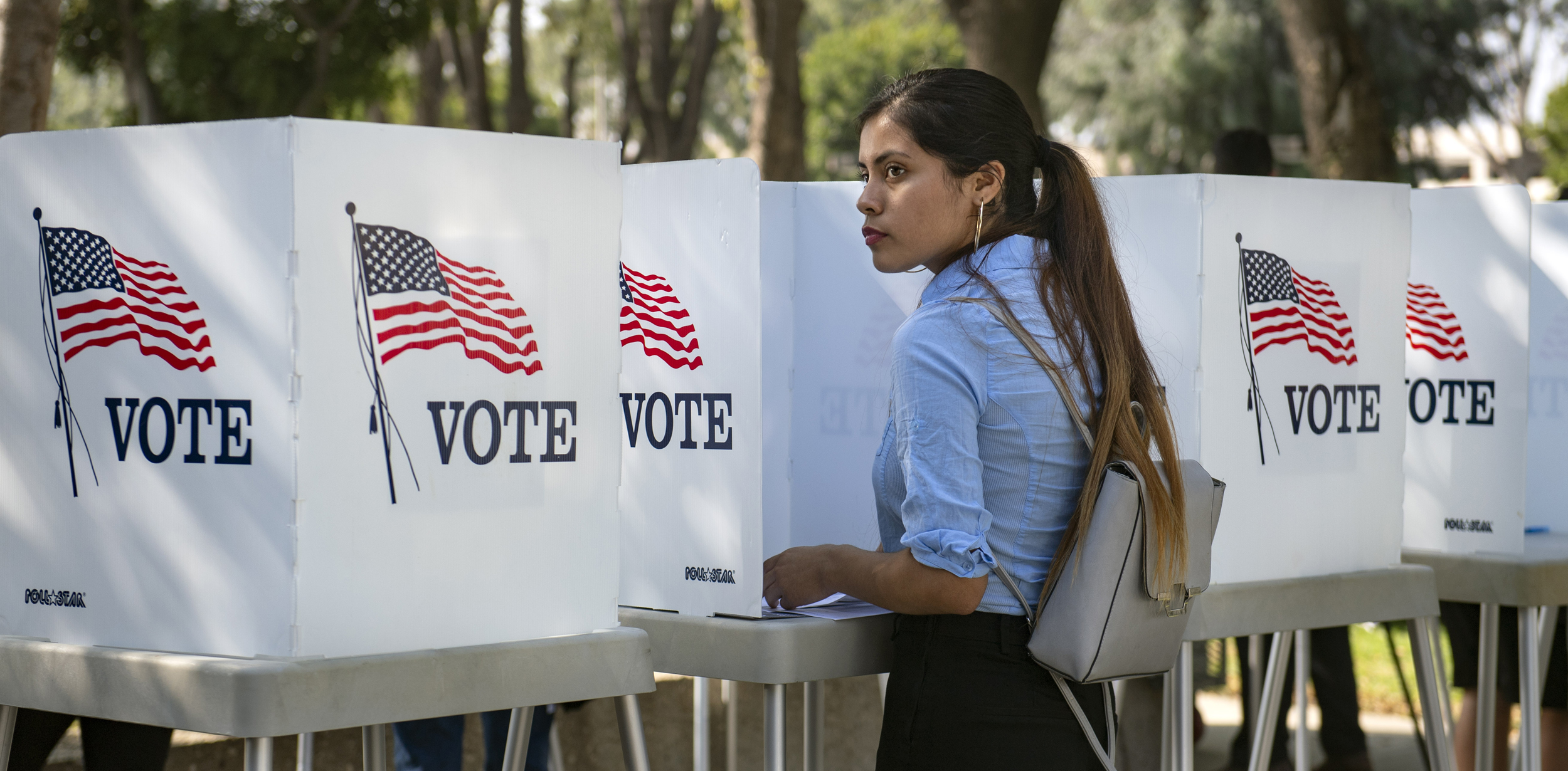As 2020 marks the first election cycle in which Latinos are the largest minority electorate, politicians and political pundits grapple with how and to what extent this voting block will impact the ballot box in November.
On Sept. 15, the Lyndon B. Johnson School of Public Affairs and the Latino Studies Department at the University of Texas at Austin invited Democratic strategist Chuck Rocha, former senior advisor to Bernie Sanders and architect of the campaign’s success with Latinos, to speak on his perspective and experience coordinating outreach to Latino voters. Rocha’s conversation with Dr. Victoria DeFrancesco Soto, LBJ School Dean for Civic Engagement, highlighted important considerations about Latino voter engagement in this year’s elections.
The Sanders campaign’s resounding victory in Nevada in February established Sanders as an early frontrunner in the primary and demonstrated the importance of galvanizing Latino voter engagement. This served as a key example of the role that Latino outreach strategies can play in a candidate’s success.
“Latinos are always seen as a low propensity voter, or someone who doesn’t show up at the same rate [as people of other ethnicities], and it’s because of one thing and one thing only: There’s never the same amount of money spent to talk to Latinos as there is to white voters,” says Rocha.
Rocha cites this as an explanation for some of the recent gains Trump has seen amongst Latinos in places like Florida, where his campaign has increased outreach. If this Texas-born strategist is right, his conversation with the LBJ School could serve as potent advice for campaigns looking to make inroads with Latinos in 2020 and beyond.
Rocha also outlined important background information for thinking about Latino voters in the 2020 elections.
First is the significant age gap between the average Latino voter versus the average white voter—gaps between Latino voters and other minority voters exist, but are less significant. Latinos are a significantly younger demographic, a common factor across an otherwise extremely diverse ethnic group. Rocha notes that this impacts the way the electorate consumes information compared to older voters.
A second major note for Rocha is the growth of first and second-generation Mexican-Americans in places such as Georgia, North Carolina and Iowa. In these states, the children of immigrants who came to the U.S. for jobs in the textile and agricultural industries have developed cultural identities distinct from established, historically-significant, Latino communities in Florida, New York and Texas.
The conversation also touched on diversity within the Latino community, highlighted through the differences in outreach by the Biden and Trump campaigns. For instance, while Trump’s ads are, as Rocha describes, “attack ads in Spanish,” the Biden campaign’s use of multiple dialects of Spanish indicates a more thoughtful approach in his efforts to court Latinos.
Another issue is reaching Latino voters across the digital divide. Latinos and other minority groups face greater challenges accessing the internet and digital forms of communication compared to white people, an issue that has worsened since the start of the pandemic after some years of improvement. Rocha’s two suggestions for overcoming this obstacle—the United States Postal Service and daytime radio—are practical examples of his repeated emphasis on connecting with Latino voters and offering them information as the first steps to engagement.
Inspired by recent polls suggesting that national campaigns contacted less than half of Latino voters, Rocha initiated a mailed-based outreach campaign targeting voters in Florida, North Carolina and Pennsylvania who were not reached through digital means.
“That’s the reason that NuestroPAC took two million dollars that I was going to put behind the [TV advertisements] and bought three million pieces of mail and sent it to every Latino in the state,” said Rocha.
A recording of Rocha’s full interview with Dr. Soto can be found below.

